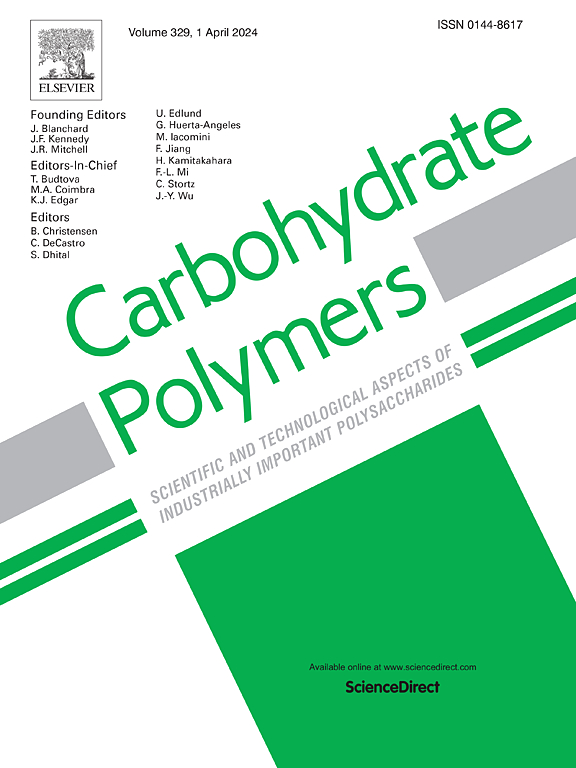壳聚糖纳米载体:一种治疗胶质母细胞瘤的有前途的方法
IF 10.7
1区 化学
Q1 CHEMISTRY, APPLIED
引用次数: 0
摘要
胶质母细胞瘤是一种生长迅速的脑肿瘤,起源于大脑或脊髓的支持组织。传统的治疗选择包括使用烷基化剂、放疗和外科手术,这些都有许多局限性。生存率低,复发率高,缺乏有效的治疗方案,使该病成为最致命的脑癌。纳米载体被广泛研究,保证了脑靶向的有效性。纳米系统还具有较高的包封效率,能够包封抗癌药物和有效的血脑屏障穿透能力,已被证明是脑间质输送治疗药物的最成功手段之一。壳聚糖(CS)具有极强的生物相容性和可生物降解性,其制备简单,理化性质可改变。CS在脑靶向药物纳米系统的合成中得到了广泛的研究。CS的黏附行为、阳离子性质及其与各种配体结合的能力有助于有效靶向胶质母细胞瘤。本文重点综述了用于胶质母细胞瘤治疗的各种基于cs的纳米载体的制备,同时描述了其适用性并反映了最近在胶质母细胞瘤治疗中的研究成果。本文章由计算机程序翻译,如有差异,请以英文原文为准。
Chitosan nanocarriers: A promising approach for glioblastoma therapy
Glioblastoma is a rapidly growing form of brain tumour originating from the supportive tissues present in the brain or spinal cord. The conventional therapeutic options include the use of alkylating agents, radiation and surgical procedures, that exhibits numerous limitations. The considerably less survival rate, very high incidence of recurrence and lack of effective therapeutic options has made the disease as the most lethal brain cancer. Being widely investigated, nanocarriers assure efficacy in brain targeting. Nano-based systems also hold the edge of higher encapsulation efficiency, ability to encapsulate anticancer therapeutics and effective blood brain barrier (BBB) penetration ability has been proven as one of the most successful means of delivering therapeutic agents in brain interstitial. The extreme biocompatible and biodegradable features of chitosan (CS) have been advantageous in combination with its easy fabrication and modifiable physicochemical behaviour. CS has been extensively investigated in the synthesis of nano-systems for brain targeting of drugs. The mucoadhesive behaviour of CS, cationic nature, and its ability to conjugate with various ligands helps in effective targeting of glioblastoma. This review specifically focuses on the fabrication of various CS-based nanocarriers for glioblastoma therapy, alongside describing its suitability and reflecting the recent research outcomes in glioblastoma therapy.
求助全文
通过发布文献求助,成功后即可免费获取论文全文。
去求助
来源期刊

Carbohydrate Polymers
化学-高分子科学
CiteScore
22.40
自引率
8.00%
发文量
1286
审稿时长
47 days
期刊介绍:
Carbohydrate Polymers stands as a prominent journal in the glycoscience field, dedicated to exploring and harnessing the potential of polysaccharides with applications spanning bioenergy, bioplastics, biomaterials, biorefining, chemistry, drug delivery, food, health, nanotechnology, packaging, paper, pharmaceuticals, medicine, oil recovery, textiles, tissue engineering, wood, and various aspects of glycoscience.
The journal emphasizes the central role of well-characterized carbohydrate polymers, highlighting their significance as the primary focus rather than a peripheral topic. Each paper must prominently feature at least one named carbohydrate polymer, evident in both citation and title, with a commitment to innovative research that advances scientific knowledge.
 求助内容:
求助内容: 应助结果提醒方式:
应助结果提醒方式:


